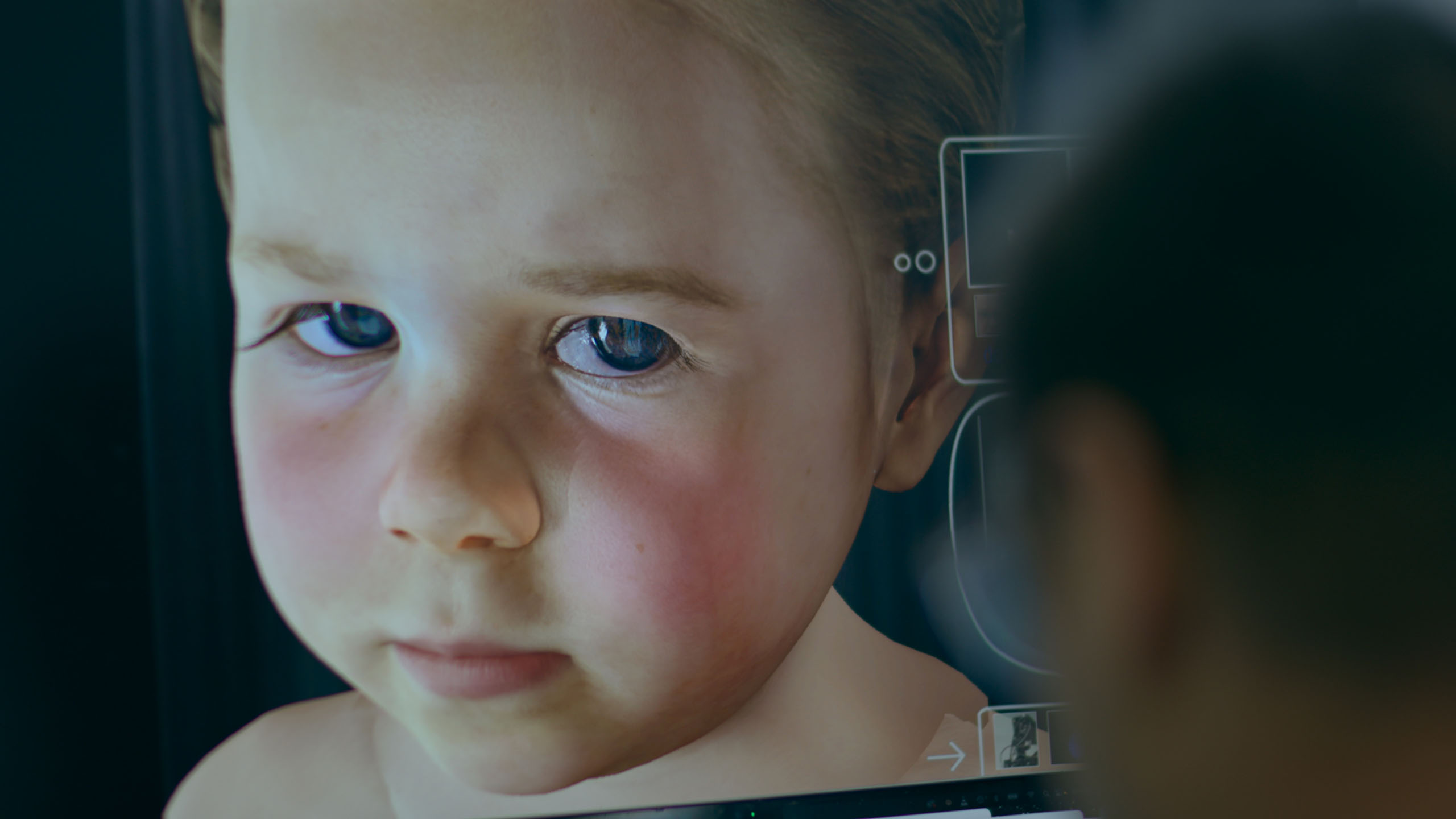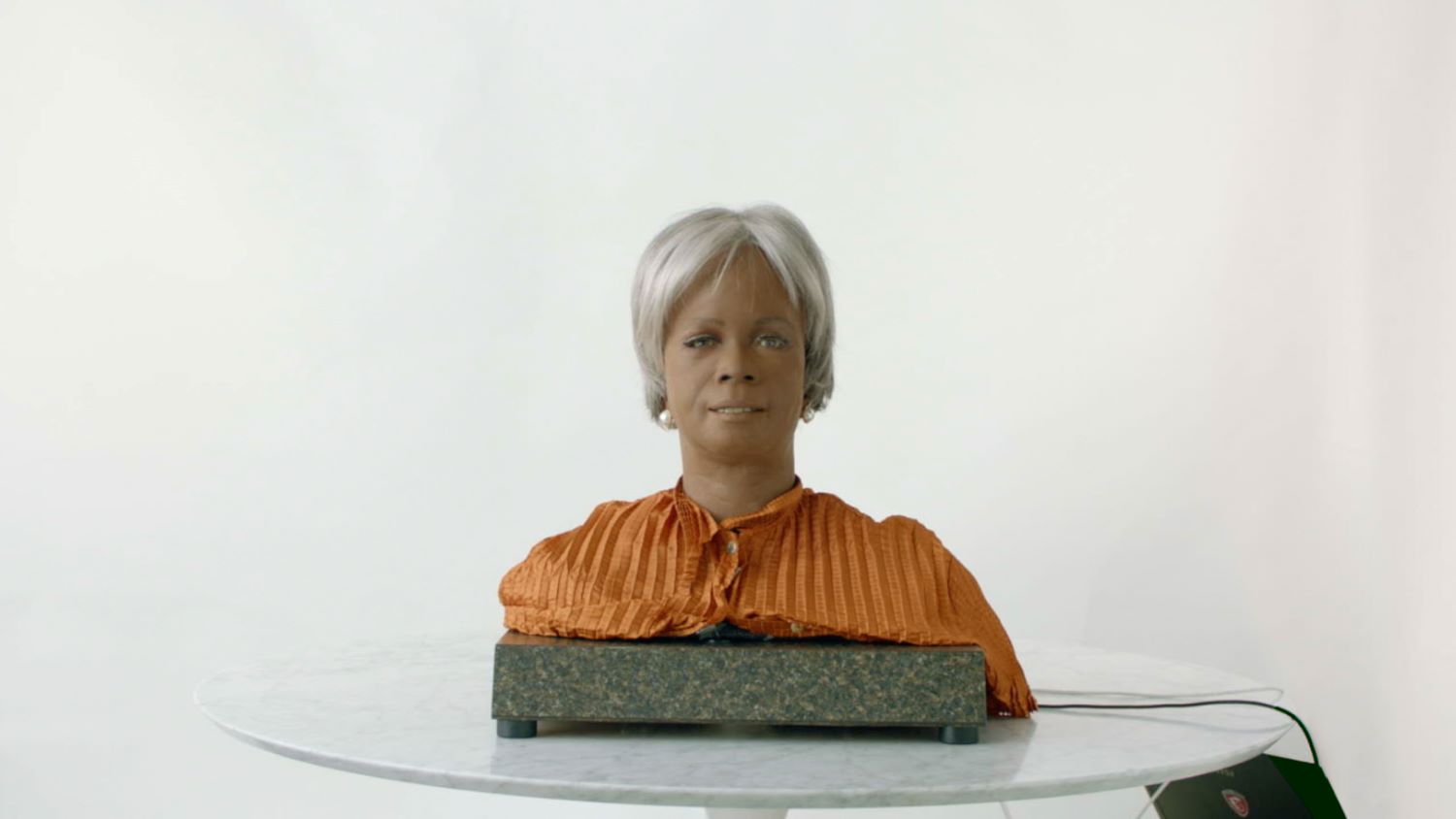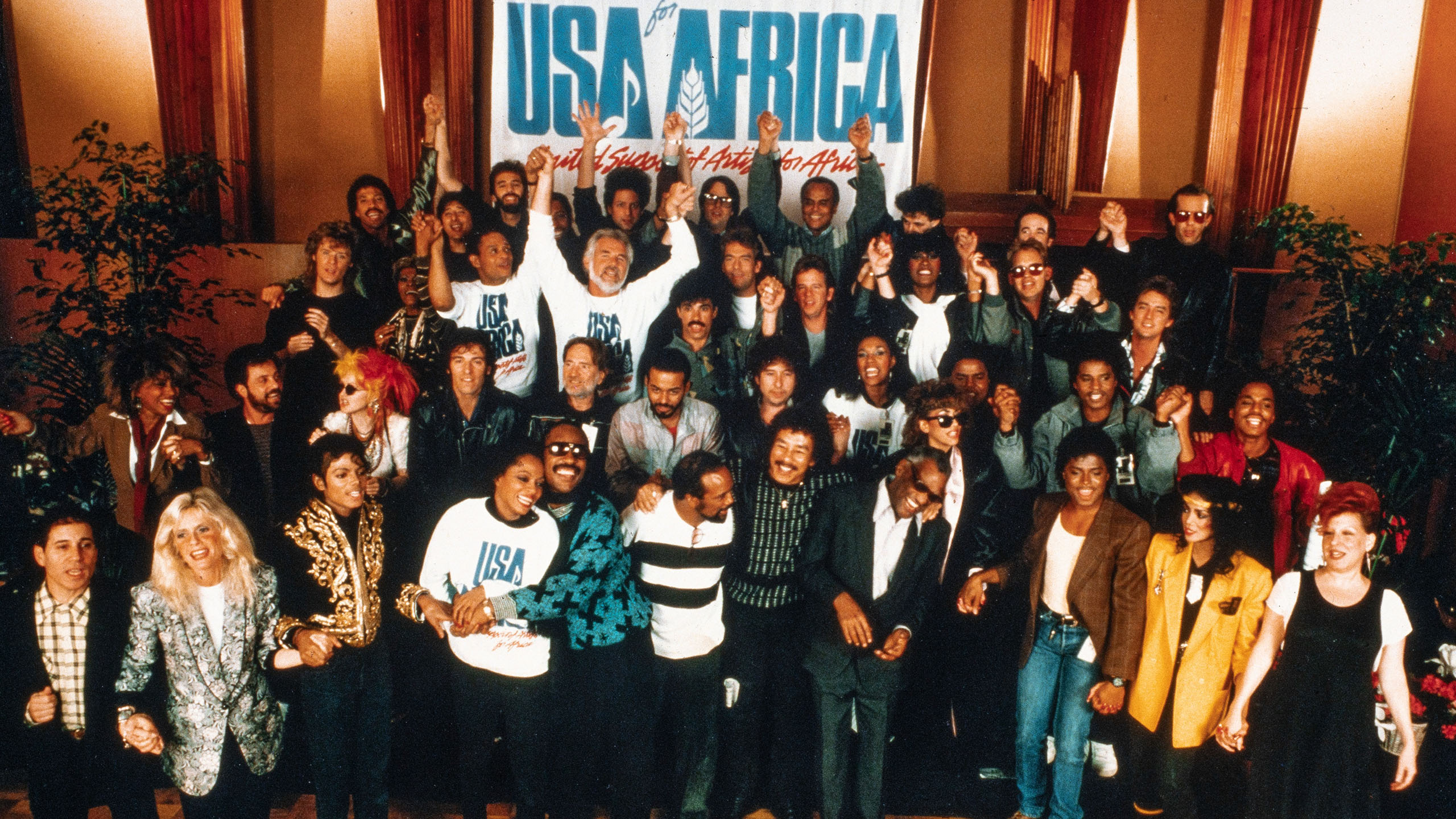With news interrupting Sundance festivities that some pervert in Toronto distributed AI-generated nude photos of Taylor Swift, artificial intelligence couldn’t have been a hotter topic during the festival. This year’s Sundance competition featured two documentaries that directly tackled the perils of AI. In one corner was the U.S. Competition doc Love Machina. In the other, the World Cinema Competition title Eternal You. Neither film scored a prize amid the jury gongs and, unfortunately, rightly so. While AI has everyone a-twitter—filmmakers, festivalgoers, and Swifties alike—it seems that documentary-land hasn’t quite found anything new to say about the new phenomenon.
For one, Love Machina offers a great premise but has more meandering filler than an essay burped out by Chat GPT. Director Peter Sillen finds an intriguing love story in the romance of futurists Martine and Bina Rothblatt. The married couple, which goes by the avatar-ready moniker Marbina in real life, hopes to make their love immortal by investing their time, energy, and resources into AI. A clunky robotic facsimile of Bina appears throughout the film as researchers test her algorithms. They strive to endow her with human-like qualities in terms of speech, affect, and composure. But the robot Bina, named BINA48, convinces more as a human to the naked eye than it does in mirroring a person’s speech patterns and thought processes. Take one look at the bust that twitches awkwardly throughout Love Machina, and one realizes that this isn’t a compliment.
Sillen’s film partly offers a biographical approach, falling somewhere between docu-tainment and PR as it tells Marbina’s story. Their romance is actually perfect fodder for a film. Love Machine tells how Martine and Bina fell in love, married in the 1980s, and forged an interracial family. They became more unique later when Martine came out as transgender and Bina said she fell in love with Martine’s spirit and not her body. They raised their kids as wives and broke ground as a queer family before delving into robotics.
Martine could fuel a doc on her own, and Sillen seems to grasp that she’s far more interesting than the technology is, as Love Machina digresses into stories about Martine’s landmark innovations that include the invention of Sirius XM radio and developing the pharmaceuticals to save her daughter—and countless other Americans—from the life-threatening complications of pulmonary hypertension. In 2022, her innovations led to the first human to receive a heart transplant from a pig. The recipient survived only a month, but the breakthrough proves that Rothblatt is a keen innovator who has taken big ideas and transformed them into reality.
There’s something a bit problematic, though, about the parallel that Love Machina tries to draw between being transgender and being a robot. Changes in a person’s physical body and identity aren’t quite the same as feeding a bunch of coded answers into a machine so that someone lives anew in robot form. Listen to Bina talk in contemporary interviews, archival clips, and then in robot form, and the AI simply doesn’t convince. If anything, the attempted parallel illustrates how much the technological innovation leaves to be desired.
BINA48’s answers spit out rambling platitudes and generally nonsensical phrases that link breadcrumbs whirling in her server. People raise some queries about the ethics of living forever, and there are asides about BINA48 reflecting white speech patterns and mannerisms as a robot modelled on a Black woman but designed by white developers. However, the larger questions often serve as obligatory commentary beats that Love Machine includes out of compulsion, rather than genuine curiosity.
Love Machine ultimately evades a question that should be at the heart of its inquiry: why live forever as regurgitated computer babel? It’s not a particularly fresh question, either, as Ann Shin’s A.rtificial I.mmortality explored many of these questions three years ago with the story of a regular working class family at a crossroads. Alternatively, the question of artificial immortality provides one of the Sundance’s standouts, Ibelin, a genuinely heartfelt exploration of the ways in which technology can provide catharsis and closure, admittedly when humans use their intellectual design to use a program to create a new life or something like it.

The same questions of enduring through AI fuel Eternal You and find about as many answers as Love Machina does. However, this study by Hans Block and Mortiz Riesewieck (The Cleaners) fares better it probes the morbid business of artificial immortality and provokes many questions. However, the approach is rather alarmist.
Eternal You introduces different people from diverse backgrounds who harness the afterlife through AI. One young man maintains a relationship his deceased girlfriend by chatting with a bot. The Chat GPT-like program offers text messages that evoke the late girlfriend’s voice. Like BINA48’s nonsensical rambling, the ghostly girlfriend’s responses are both targeted enough to be familiar, yet vague enough to avoid inaccuracy. The same goes for a woman who connects with her late father by signing up for a program that lets his voice carry a conversation that draws from a pre-fed memory bank. Most distressingly, a Korean woman submits to virtual reality voyeurism as she hugs her dead daughter for the world to see. The latter video has, by the YouTube count noted in the film, no less than 35 million views. The morbid curiosity that Eternal You tackles is therefore of global concern.
It’s a hot topic and the filmmakers invite a gaggle of tackling heads to weigh in. A therapist notes the obvious factor that prolonging the grieving process with a placebo isn’t healthy. People, she says, need to mourn in order to move on. This technology doesn’t allow one to let go. It invites isolation, whereas the sharing of grief offers a return to community.
Other talking heads debate the ethical concern that so many tech companies are jumping into the business of death. They again note fairly obvious factors, like how the practice exploits emotionally vulnerable people and raises red flags about the ownership of a person’s information. How the dead control their data is one of the many tough questions the film asks, with one relative noting that she’d rather not hear from anyone in Heaven—or Hell!—after they’ve passed.
Like the programs being developed in both films, however, these stories are still being written. Love Machine and Eternal You are more speculative than substantive. Many of the debates in these films circulate widely in the media, although Eternal You admittedly serves as an engaging distillation of the pros and cons of AI for anyone unfamiliar with the topic. However, audiences in the know, even with limited knowledge, likely won’t have their opinions swayed about the technology by either film. The technology doesn’t come off especially well, but, considering the films, humans don’t either. Love Machina and Eternal You mostly invite the observation that rich people could put their money to better use.
Love Machina and Eternal You premiered at the 2024 Sundance Film Festival.














